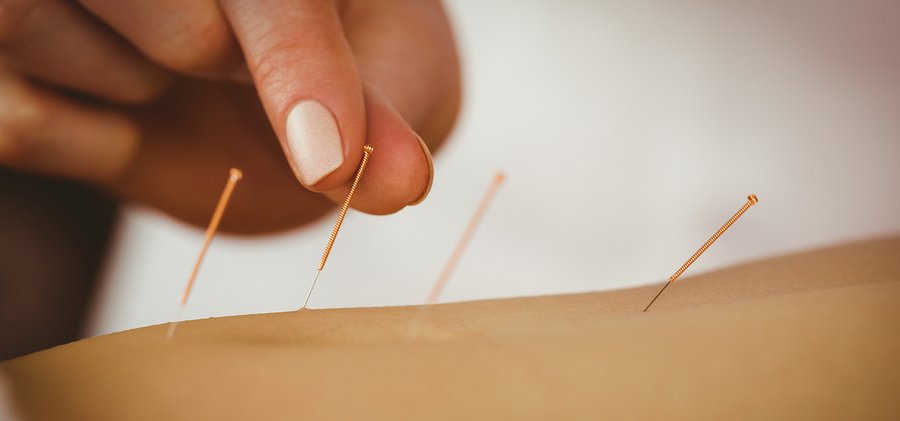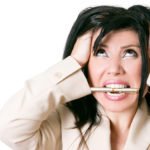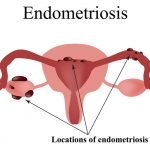As we age, most of us have to deal with more physical problems than when we were younger. These can run the gamut from a slower metabolism to achy joints and lots of other issues. But many women as they reach their late 40s or early 50s will say that among their biggest complaints are the symptoms related to menopause. If that sounds familiar, new research has uncovered some good news for you, in the form of a natural treatment that can potentially help.
The study, which was conducted at the University of Copenhagen in Denmark, found that acupuncture may offer relief from a range of menopause symptoms, even in women with moderate or severe cases.1Lund, Kamma Sundgaard; et al. “Efficacy of a standardised acupuncture approach for women with bothersome menopausal symptoms: a pragmatic randomised study in primary care (the ACOM study).” BMJ Open. 19 February 2019. Accessed 24 February 2019. http://bmjopen.bmj.com/content/9/1/e023637. These results are based on an investigation that included 70 women residing in Denmark who were going through menopause and were experiencing significant symptoms such as hot flashes, sleep disturbances, and/or mood swings.
The subjects were randomly divided into two groups. One of the groups received weekly 15-minute sessions of Western medical acupuncture for six weeks, while the other group did not receive any form of treatment. The acupuncture sessions were performed by doctors in nine different medical practices, all of whom had full acupuncture training and had spent an average of 14 years performing acupuncture.
Participants receiving the treatment reported a substantial drop in hot flashes and a decrease in both the severity and frequency of day and night sweats, overall sweating, sleeping difficulties, emotional symptoms, menopause-related physical issues, and hair problems. In fact, a whopping 80 percent of the volunteers in the acupuncture group said that their menopause symptoms had improved due to the treatment.
It is worth noting that the study is somewhat limited by its small population sample size and its short duration. And because of the design of the research, we can’t definitively say that the relief the women experienced was not due to a placebo effect simply based on getting some form of medical help. However, it’s also important to remember that even with a placebo effect, the outcomes can be very real and valuable to the subjects. A 2009 study at University Medical Center Hamburg-Eppendorf in Germany showed that the placebo effect can actually cause changes in the pain-signaling mechanism in the body.
We also shouldn’t ignore the fact that acupuncture has been practiced successfully in China for thousands of years, and there is probably a good reason it has had such staying power. The practice of acupuncture involves inserting fine needles into the skin. They are applied to precise points on the body at differing depths to achieve pain relief, promote wellness, and alleviate stress. And it has proven benefits, shown in studies to be an effective form of treatment for fibromyalgia, osteoarthritis, and chronic obstructive pulmonary disease (COPD). What’s more, the current research is not the first time that acupuncture has been found to successfully manage hot flashes. A 2008 study at the Henry Ford Hospital in Detroit, Michigan discovered that acupuncture provided a more effective and longer lasting treatment for hot flashes than pharmaceutical drugs. More effective than pharmaceutical drugs means that we’re probably not talking placebo effect. Or if we are, who cares?
If you experience menopause symptoms that are uncomfortable enough to affect your quality of life, you should certainly consider acupuncture. After all, medical treatments that involve hormone replacement therapy can be downright dangerous, with its use linked to breast cancer and even death. And acupuncture seems to work better anyway.
To find an acupuncture practitioner near you, start by searching the website of the National Certification Commission for Acupuncture and Oriental Medicine, which provides information on more than 17,000 board-certified acupuncturists in the United States that you can search by city. Another good source is the website of the American Academy of Medical Acupuncture, which maintains a listing of physicians trained in acupuncture that you can search by state or specialty.
References
| ↑1 | Lund, Kamma Sundgaard; et al. “Efficacy of a standardised acupuncture approach for women with bothersome menopausal symptoms: a pragmatic randomised study in primary care (the ACOM study).” BMJ Open. 19 February 2019. Accessed 24 February 2019. http://bmjopen.bmj.com/content/9/1/e023637. |
|---|











